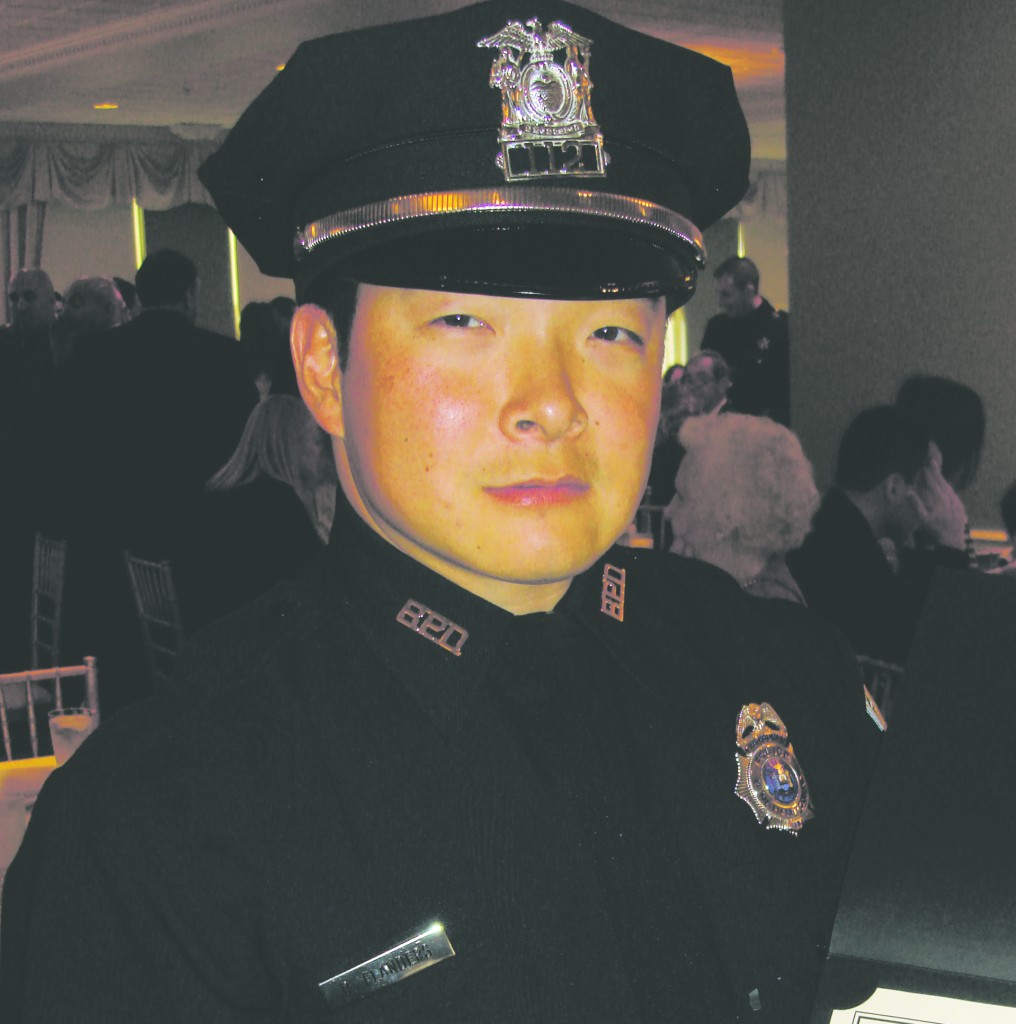
Although half of Binghamton University’s undergraduate student population resides off campus – many in the city of Binghamton – the University has never employed an officer to work off campus. Starting this semester, the school will have a presence Downtown.
Officer Dan Flanders, a veteran of the Binghamton police force, was selected in late August to be a liaison between the Binghamton Police Department and Binghamton University. According to the terms of the deal, BU will reimburse the city for Flanders’ $50,000 annual salary, while the city will pay for his health and retirement benefits. In exchange, Flanders will still report to the Binghamton police chief, but focus his efforts on student-related issues.
Flanders said that experience from his regular patrols on weekends coupled with his new office hours in the University Downtown Center during the day will make him an asset and resource to students and locals alike.
“Patrol officers are often running from call to call, and this is a position that is more available to students and residents,” Flanders said. “If students are involved with police and have questions, if something happened off campus they want to report or if they just want to come in and talk.”
According to President Harvey Stenger, in addition to filling weekly reports for the school, Flanders will patrol popular areas where college students congregate on Thursday, Friday and Saturday nights.
“He will be there late night and early morning walking the beat,” Stenger said. “From State Street, to Main Street, around Front Street and down Riverside. Sometimes he will be on foot and sometimes he’ll be in the city vehicle, but he’ll be out there.”
Stenger said that the goal of the partnership was to provide students with an officer that they felt comfortable approaching.
“He knows that he’s working for us, and he’s more apt to be patient and listen,” Stenger said. “It’s not that other officers aren’t patient or helpful, but they have a lot of other responsibilities.”
University Police Investigator Patrick Reilly said that in the past, many students would report off-campus crimes and issue to UPD. But since it was not under University jurisdiction, they would normally be referred to the city of Binghamton police.
“For whatever reason, students are hesitant to go to the police station, so we’re hoping it will be easier to go to the Downtown Center,” he said.
Flanders agreed, saying his office could streamline reports to Binghamton police.
“It’s a resource: Rather than have to go to the police station and have to go through security and a lot of steps, which are necessary, they can just come in here without all of those inconveniences,” Flanders said.
The program, which is modeled after a similar one instituted at Binghamton High School, is guaranteed for one year. After the time is up, Stenger and the BU Foundation will decide whether or not to continue its funding.
According to Stenger, the decision will be based on years of surveys conducted by the University through the Binghamton Neighborhood Project. The surveys ask Binghamton residents if they feel safe and what their impressions are of law enforcement, and officials will use the differences to see if the new officer made an impact.
“If I we see improvements I’ll consider extending the program another year,” Stenger said.
Daelin Fischman, a sophomore majoring in computer science, said that he believed the new program would be helpful to the off-campus community.
“It sounds like a good idea,” Fischman said. “It would help out the local police while also presumably being a better authority to deal with students. “I have never actually had an interaction with Binghamton police, but if I needed to, this would probably make things easier.”
Eitan Sheena, a sophomore majoring in biology, was more skeptical. He said that the University should not be so involved with student affairs Downtown.
“Anywhere off campus seems like it should be out of their jurisdiction,” he said.


